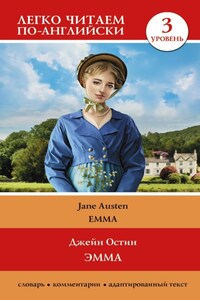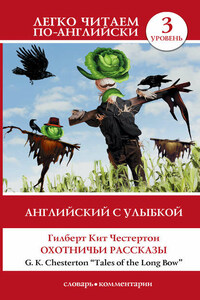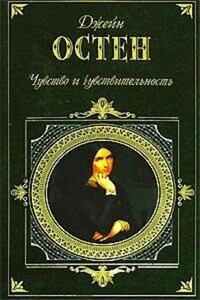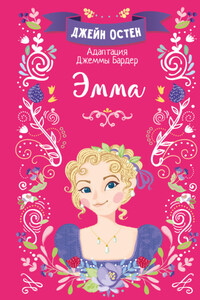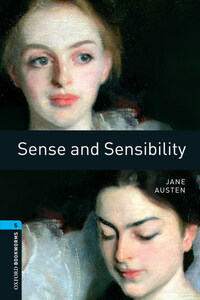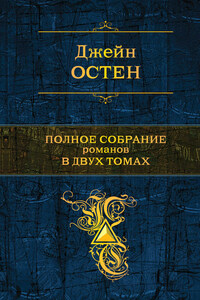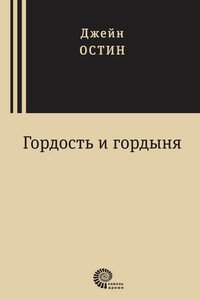Emma Woodhouse[1], beautiful, clever, and rich, had lived nearly twenty-one happy years in a comfortable home. She was the youngest of the two daughters of a most loving father; and had, since her sister's marriage, been mistress of his house from a very early age. Her mother had died long ago.
Sixteen years had Miss Taylor[2] been in Mr. Woodhouse's family, less as a governess than a friend, very fond of both daughters, but particularly of Emma with whom they were very close. Then Miss Taylor married-that was the first grief. It was on the wedding-day of this beloved friend that Emma first sat in mournful thought. The wedding was over, and Emma's father and herself were left to dine at home together. Her father had gone to sleep after dinner, as usual, and she had then only to sit and think of what she had lost.
Mr. Weston-Miss Taylor's husband-was a man of excellent character, easy fortune, suitable age, and pleasant manners; but it was a black morning for Emma. She recalled Miss Taylor's kindness- how she had taught and how she had played with her from five years old-how she had devoted herself to amuse the child.
It was true that her friend was going only half a mile from them; but Emma knew that great must be the difference between a Mrs. Weston, only half a mile from them, and a Miss Taylor in the house. Emma dearly loved her father, but he was no companion for her.
Mr. Woodhouse had no activity of mind or body, he was a much older man in ways[3] than in years; and his talents could not have recommended him at any time[4].
Emma's sister Isabella[5] lived in London, only sixteen miles off, but that was much beyond her daily reach.
In Highbury[6], the large and populous village, to which Hartfield[7] belonged, she had no equals. The Woodhouses were first in consequence[8] there. All looked up to them. She had many acquaintance in the place, but not one among them who could be accepted in lieu of[9] Miss Taylor for even half a day. It was a melancholy change; and Emma could not but sigh over it. Her father was a nervous man, easily depressed; hating change of every kind. Matrimony, as the origin of change, was always disagreeable; and he was by no means yet reconciled to his own daughter's marrying, nor could ever speak of her but with compassion. He thought that Miss Taylor had done as sad a thing for herself as for them, and would have been a great deal happier if she had spent all the rest of her life at Hartfield. Emma smiled and chatted as cheerfully as she could, to keep him from such thoughts; but when tea came, it was impossible for him not to say exactly as he had said at dinner,
“Poor Miss Taylor! – I wish she were here again. What a pity it is that Mr. Weston married her!”
“I cannot agree with you, papa; you know I cannot. Mr. Weston is such a good-humoured, pleasant, excellent man, that he deserves a good wife; – and you would not have made Miss Taylor live with us for ever, when she might have a house of her own?”
“A house of her own! – But where is the advantage of a house of her own? Our house is three times as large.”
“We shall be going to see them often, and they will be coming to see us! – We shall be always meeting! We must begin; we must go and pay wedding visit very soon.”
“My dear, how am I to get so far? Randalls[10] is such a distance. I could not walk half so far.”
“No, papa, nobody thought of your walking. We must go in the carriage, to be sure.”
Emma hoped backgammon[11] would keep her father distracted for an evening. The backgammon-table was placed; but a visitor immediately afterwards walked in and made it unnecessary.
Mr. Knightley[12], a sensible man about seven or eight-and-thirty, was not only a very old and intimate friend of the family, but particularly connected with it, as the elder brother of Isabella's husband. He lived about a mile from Highbury, was a frequent visitor, and at this time more welcome than usual, as he was coming directly from their relatives in London. He had returned to a late dinner, after some days' absence, and now walked up to Hartfield to say that all were well there. It animated Mr. Woodhouse for some time. When the inquiry about “poor Isabella” was over, Mr. Woodhouse decided to change the “poor” subject,
“Ah! poor Miss Taylor!”
“Poor Mr. and Miss Woodhouse, if you please; but I cannot possibly say 'poor Miss Taylor.' I have a great regard for you and Emma; but when it comes to the question of dependence or independence! – At any rate, it must be better to have only one to please than two.”
“Especially when one of those two is such a capricious, troublesome creature!” said Emma playfully. “That is what you have in your head, I know-and what you would certainly say if my father were not by.”
“I believe it is very true, my dear, indeed,” said Mr. Woodhouse, with a sigh. “I am afraid I am sometimes very capricious and troublesome.”
“My dearest papa! You do not think I could mean you, or suppose Mr. Knightley to mean you. What a horrible idea! Oh no! I meant only myself. Mr. Knightley loves to find fault with me, you know – in a joke – it is all a joke. We always say what we like to one another.”
